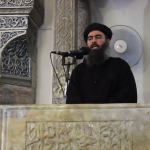
REPORT: Ending the Endless War
Ending the Endless War: An Incremental Approach to Repealing the 2001 AUMF
Policy Report By Bill French with John Bradshaw
August 2014, Updated February 2015
This paper was updated in February 2015.
The Authorization for the Use of Military Force (AUMF) passed in 2001 is unique among other such authorizations in American history in that it includes no limitations in time, geography, operations, or a named enemy, as this report documents in detail. The lack of limits in the 2001 AUMF has set America adrift on an unreflective course toward perpetual war, increasing the risks of blowback against American national security objectives. The lack of limits in the AUMF has also facilitated an expansion of combat operations far beyond the scope envisioned by the lawmakers that approved the authorization over a decade ago. Today, the question is whether policymakers will accept perpetual war or change course and return to traditional legislated limits on use of force.
To read the full report, click here.
This paper assesses the national security risks of perpetual warfare entailed by the 2001 law and recommends a way forward to realize President Obama’s commitment to “refine, and ultimately repeal” the AUMF. A realistic window of opportunity is emerging to refine the law by bringing it in line with historical practice and putting it on the course toward repeal. The war in Afghanistan is coming to a close. The campaign to degrade and destroy core al-Qaeda has largely succeeded, rendering the organization “probably unable to carry out complex, large-scale attacks in the West.” Moreover, the expansion of operations under the AUMF has already stressed its authority to the limits and leaves open the possibility of expansive interpretations of the law by future administrations, further calling for refinement. While it is important to manage the risks posed by terrorist organizations that do not fit under the original AUMF or our proposal – such as the Islamic State – that task can be sufficiently addressed with currently existing authorities and methods that do not involve the 2001 law, such as the President’s Article II Commander-in-Chief powers, the War Powers Resolution, intelligence capabilities, law enforcement, or additional separate authorizations against other specific threats if necessary.
To move toward the objective of repeal, we recommend an incremental approach that would cap the scope of the authorization now and roll back its scope over time, ending in its eventual expiration. In order to cap and roll back the law in this fashion, the authorization must first be brought more in line with traditional limits on use of force used in past authorizations by amending it to include:
- Limits in time by inserting a sunset clause to put the law on a natural course toward expiration, but keeping open the option for temporary reauthorization if necessary;
- Limits on targeting authority through establishing a list of named enemy organizations to which the authorization applies; and
- Geographic limits by listing regions or countries where force may be employed.
These changes can achieve a capping effect on the war authority by limiting named enemies to those organizations already targeted pursuant to the 2001 law – the Taliban, al-Qaeda, and their specific associated forces (which have not yet been publicly named) – and by limiting authorized geographic areas to those in which operations are already occurring. Applying these limits would help prevent the expansion of conflict under a revised AUMF and keep the law as close as possible to its original purpose of pursuing those responsible for the September 11 attacks.
These same changes can also enable the rollback of the authorization over time: after authorized use of force is limited to named enemy organizations and geographic areas, policymakers can dial down war authority over time by removing named enemy organizations and geographic areas from the authorization as circumstances permit. This rollback approach also allows policymakers to draw down war authority in a piecemeal fashion rather than having to consider only the broader choice of keeping all war authority or losing all war authority. Regardless of how policymakers exercise the options of gradual rollback of authority, the addition of a sunset clause to the law puts the authorization on a natural course toward expiration. Because a sunset clause results in delayed expiration – and can be reauthorized – the incremental approach to repeal both guards against perpetual war and avoids precipitously concluding sustained combat operations against al-Qaeda.
Finally, caution is required for modifying and repealing the 2001 AUMF. Refining and ultimately repealing the AUMF will require engaging in a presumably contentious political process in which potentially multiple proposals are offered. For the process of refining the law to be successful – even if not in the exact terms we propose – there are a number of pitfalls to avoid. In particular, proposals to expand the 2001 AUMF to serve as – or replace the law with – a general counterterrorism authorization against threats beyond al-Qaeda and the Taliban should be carefully avoided. Such an approach would not only have an entirely different purpose than the 2001 law, but also lack clear national security justification for reasons that we detail.
To read the February 2015 updated version, click here.
To read the original posting, click here.
In the News
- Senator Rand Paul Cites NSN Paper in Foreign Relations Committee Meeting, December 11, 2014
- NSN’s 2001 AUMF Report Quoted in The Epoch Times, September 3, 2014
- Defense News on NSN AUMF Repeal Report, August 13, 2014
- POLITICO Features NSN AUMF Repeal Report, August 12, 2014



